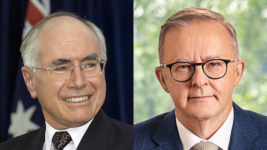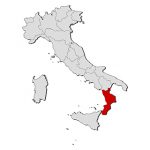Howard’s Duping the Public on Iraq Should Stand as Warning to the Present

Australia following the US into a foreign war is pertinent at present. The slow understanding that China was starting to be framed as an adversary in the media commenced circa 2017 and, since last March’s San Diego AUKUS announcement, it’s become a fast gallop towards military conflict.
That’s why this year’s National Archives of Australia (NAA) public release of the 2003 Howard government cabinet papers, as per legal requirement, was hotly anticipated: these documents would reveal, it was hoped, the decisions regarding how our nation joined the war in Iraq.
Well, it was that and the fact the decision to join that illegal war was based on blatant lies.
But come the regular 1st of January release date of the two-decade-old records, it came to light that 82 documents hadn’t been handed over. And this issue has since been rectified, and those “misplaced” documents, besides a few held over for national security, were released on 15 March.
The new documents continue to reveal the dubious nature of the decision for this nation, the US and the entire coalition of the willing to commence its invasion of Iraq on 20 March 2003, and the fact that planning decisions were being made in relation to this military operation as early as 2002.
Last week’s release of the final documents, which should have been published earlier, also serves to highlight some of the similarities regarding the period prior to the war on Iraq and the current pre-war on China climate, as well as providing some awkward parallels to PM Albanese’s recent form.
Preparation long precedes declaration
A just released 18 January 2003 Cabinet Minute of the National Security Council notes then defence minister Robert Hill advising that Australia should make forward deployments of military equipment and personnel for war on Iraq within the month, in accordance with US Central Command.
The minute also sets out that UN weapons inspectors weren’t able at that point to find any evidence of weapons of mass destruction, the pretext for warring on Iraq, and that plans for Australian Defence Force forward deployments were first considered in August 2002.
This was months prior to the US-led invasion. The US then already had “the likely timeframe for possible military action against Iraq”, which was on commission promptly condemned by the UN Security Council as “a violation of international law”. And the elusive WMD were never located.
Keep your powers close
Established by then PM John Howard in 1996, the National Security Cabinet, amongst other things, holds war powers, which is the decision-making ability to decide on whether the nation enters a foreign war. So, a small select group of ministers and the PM make the decision on going to war.
The NSC is comprised of PM Anthony Albanese, defence minister Richard Marles, foreign minister Penny Wong, treasurer Jim Chalmers, energy minister Chris Bowen, AG Mark Dreyfus, home affairs minister Clare O’Neil, finance minister Katy Gallagher and defence industry minister Pat Conroy.
Having these nine ministers as the sole decisionmakers on entering into a foreign theatre of war is not on, according to Australians for War Powers Reform (AWPR), which is not alone in calling for this decision to be made by parliament: a process that triggers the representatives of all constituents.
And just as the public was blind to the fact that Howard ministers were making lists for forward deployments in readiness for war on Iraq in August 2002, we too have no idea of what US Central Command has planned for China, except for the morsels of information fed to Canberra.
Build up to Iraq, build up to China
The reason for deployment to Iraq had nothing to do with WMD. The real reason is the same as that behind following the US into Vietnam, and that’s the 1951 ANZUS treaty, which is the same reason the nation has followed Washington into eight foreign theatres of war since World War II.
Australia entered into ANZUS with the US and New Zealand. This security pact is unlike NATO, as it is a commitment to mutual military support, but it’s nonbinding.
Therefore, Australia follows the US into these wars, no questions asked, in an unguaranteed attempt to maintain this arrangement.
The turn towards US military backing commenced during the Second World War, as the Curtin government looked to Washington for the lead and support of a superior power, after the UK had pulled its presence out of Asia to deal with trouble closer to home.
The flimsy protections of ANZUS were prompted by the keenness of Australia in having jumped at the chance to join the Korean War. And it further led to the 1960s imposition of strategic US sites at Pine Gap and North West Point.
And after then PM Gough Whitlam was dismissed in 1975, no other Australian leader has questioned the legitimacy of those US installations.
Indeed, the Gillard government greenlighted further US military inroads into this continent in 2011, with the Obama administration’s pivot to Asia, which were made official by the Abbott administration, under the 2014 Force Posture Agreement.
The FPA provides for the 2,500 US Marines deployed to the Northern Territory, as well as that US and Australian air forces are increasingly becoming interoperable, while US forces have “unimpeded access to and use of” dozens of “agreed facilities and areas”.
When the US decides to make alterations and improvements to such a facility or area, Australia has granted the US full “operational control” of it. This happened of late at RAAF Base Tindall, which saw the construction of storage for six US B-52 bombers, which are obviously aimed at China.
And as our nation respects the Pentagon’s policy of warhead ambiguity, those war planes and any other US military vehicles or vessels, such as submarines, present in Australia could be carrying nuclear warheads, and we have no idea, which is no issue for our government.
Albanese’s Iraq moment
Labor ran for election in 2022 on a platform that included reviewing war powers reform, in line with the want of AWPR. However, defence minister Marles tried to curb any reform on convening the inquiry and foreign minister Wong said there would be no change prior to the inquiry report release.
And as AUKUS pact developments have continued apace, it’s becoming increasingly obvious that the Albanese-Wong-Marles trio might have been plotting to maintain war powers all along, as now they’re in the top seats, they’re actually considering they may be exercising these themselves.
Morrison launched AUKUS in September 2021. But Albanese has taken up the policy with gusto, and since the March 2023 San Diego announcement on how the pact would progress, including our nation’s acquisition of eight nuclear-powered submarines, developments have hit lightning speed.
However, these days, Australia may never acquire any submarines: a decision we are now aware is completely up to the US.
Although, with the US and the UK establishing a permanent submarine base in WA, which will be staffed by 700 US personnel by 2027, if we don’t have any subs, we can simply rely on theirs.
Planning is now underway for a nuclear waste dump on unceded First Nations land, as none of the AUKUS powers currently have the capacity to dispose of such materials on a permanent basis. And under US military law, Australia is now considered a domestic source for resources.
Patterns of buildup
A 17 March statement from AWPR outlines that further revelations present in the last week released cabinet papers, include the fact that while our nation had planned to invade Iraq alongside the US, it had initially sought to get out quick and play no peacebuilding or reparations role in the country.
Also revealed was that Howard had not consulted the Australian governor general, then Peter Hollingsworth, on entering the war with Iraq, seemingly to avoid any rejection from the GG, who is also the ADF commander-in-chief, as he’d already consulted the attorney general as to the legalities.
Rather, the then defence minister launched the war under section 8 of the Defence Act 1903 (Cth).
The recent cabinet papers also have bearing on the PM’s actions in relation to Israel’s genocidal assault on the Palestinians of Gaza, as he agreed to join the US-led Operation Prosperity Guardian against Yemen in December, over the Houthis having attacked ships in support of Gazans.
Albanese refused a US request to send a ship to the Middle East. However, he determined to send over eleven personnel, who, Marles confirmed, were present at operational headquarters, as the US and UK began military strikes against the Yemini Houthis, along with civilians caught in the attacks.
The US assaults on Yemen have been ongoing. And late last month, the government determined to send six more ADF personnel to assist with the US and UK strikes on Houthi positions.
Now, if US Central Command was aware of the outlook for Iraq months in advance, what’s it foresee now in the Middle East in regard to a regional war spilling out from the Israeli perpetrated genocide in Gaza? And could the personnel be part of a future deployment as happened with the Iraqi War?
As AWPR’s Dr Alison Broinowski explained this week in Pearls and Irritations, US president Joe Biden hasn’t sought congressional approval to launch attacks on Yemen, in accordance with that nation’s 1973 war powers law, and a 60-day-limit he had within which to seek approval has lapsed.
The constituents of this nation learnt that Australia had been involved in the initial strikes on Yemen, when Biden announced it to the globe and not from any of our locally elected leaders.
And it’s likely that this slip up, in terms of informing the public here, metaphorically speaks volumes about our future.







